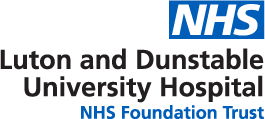By continuing to use the site, you agree to the use of cookies. You can find out more by following this link - Close
‘Adjuvant’ treatments are those that follow on from surgery. These treatments are commonly recommended after surgery to reduce the risk of breast cancer recurrence, both in the breast and elsewhere in the body.
Clinicians for the Mount Vernon Cancer Centre provide the Breast Cancer non-surgical oncology service at the Luton & Dunstable Hospital. The team is lead by Dr. Mei-Lin Ah-See, Consultant Clinical Oncologist.
All of the tissue that is removed at the time of surgery is sent to the laboratory to be looked at under the microscope. We normally get this result about ten days after your operation and we then discuss this in a Multidisciplinary Team Meeting (MDT) with Surgeons, Radiologists, Pathologists, Oncologists and Breast Care Nurses present. This is to make a joint decision about whether any further surgery is required, and, if not, what extra treatments would benefit you.
You will be given an appointment to come back to talk to your Surgeon and Breast Care Nurse about the results and the MDT decision on the Friday afternoon following your surgery. It helps to have somebody with you when you come for this appointment. Your Breast Care Nurse will give you written information on what treatments have been discussed and also on what your own results were.
The types of adjuvant treatment that may be discussed with you are:
Radiotherapy is a ‘local’ treatment, given to a particular area (the breast or chest wall with or without lymph node areas). The other forms of adjuvant treatment (endocrine therapy, chemotherapy and biological agents) are all known as ‘systemic’ treatments. Systemic means that these are drugs that treat the whole body and work to reduce the risk of breast cancer recurrence in all parts of the body
Sometimes you may be offered treatments before surgery; these are referred to as neo-adjuvant treatments.

